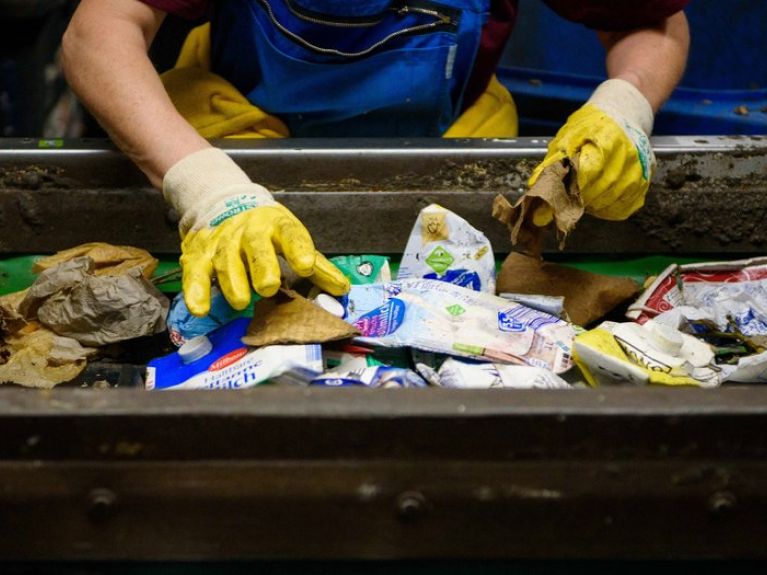Sustainability in Germany
These portals provide interesting information on political concepts and you’ll find out how citizens and entrepreneurs can learn to act more responsibly.

Federal Institute for Geo-Sciences and Raw Materials
Using raw materials economically: the staff at the Federal Institute for Geo-Sciences and Raw Materials (BGR – Bundesanstalt für Geowissenschaften und Rohstoffe) advise the ministries on questions concerning applied geo-sciences and geo-scientific issues in environmental and resources conservation. The BGR employees are commissioned by the Federal Government to carry out projects in developing countries in particular and to undertake assignments in research and development.
German Environmental Management Association (B.A.U.M.)
Entrepreneurs get involved in environmental protection: The German Environmental Management Association (B.A.U.M.) fights for environmentally conscious management and advises companies in matters dealing with sustainable development. The group has been working since 1984 to make the worlds of politics, business and the general public more aware of how we can all protect our natural surroundings.
CSR Germany
The players at CSR Germany show how companies can assume social responsibility. The Confederation of German Employers‘ Association (BDA) and the Federation of German Industries (BDI) support entrepreneurs who want to get involved in social and environmental issues on a voluntary basis. CSR Germany is a political lobby on a national, European and global level.
Association for German Nature Conservation
Environmental protection and nature conservation concern each and every one of us. The Association for German Nature Conservation (DNR – Deutscher Naturschutzring), which was first founded in 1950, has been working steadily to secure and enhance our quality of life. Today, 96 different associations belong to the umbrella association of nature conservation and environmental protection organizations in Germany.
econsense – Forum for the Sustainable Development of German Industry
Corporations carry responsibility: The Forum for the Sustainable Development of German Industry (econsense) is a sector-spanning network of globally active companies and organizations based in Germany who want to make more room for ecological and social issues in decision-making – in other words, to focus on sustainable development. econsense has encouraged dialog between industry, science and politics since 2000.
Forum for Sustainability (FONA)
Renewable resources should only be used to the extent that they are able to regrow. If you observe this formula, you are striving for sustainability. Politicians, researchers and experts meet every year at the Federal Ministry of Education and Research’s Forum for Sustainability (FONA) in order to explore new thematic emphases for the survival of coming generations.
Encyclopedia of Sustainability
The resources available on our planet are limited – and our society would do well to manage them “sustainably“. “Sustainability“ is the term used for developmental strategies that meet the needs of the present generation without compromising the ability of future generations to meet their own needs. This concept applies not only to ecology, but to economic and social aspects of human society as well. Would you have known that? All this and more can be found in the Encyclopedia of Sustainability.
Council for Sustainable Development
Future generations will also want to use the resources of our planet and that’s why the German federal government is focused on sustainable development in the environment, in the economy and in social issues. The Council for Sustainable Development has been advising politicians in their national strategy and suggesting projects since 2001. Academics, entrepreneurs and environmental protection experts all contribute their know-how.
Wuppertal Institute for Climate, Environment and Energy
Doing research towards sustainable development – the Wuppertal Institute for Climate, Environment and Energy (WI) has been examining the environment and its interrelations with the economy and society since 1991. The WI is part of the North Rhine-Westphalian Science Center; its customers include municipalities, ministries, associations and enterprises.
